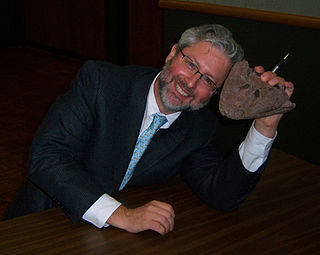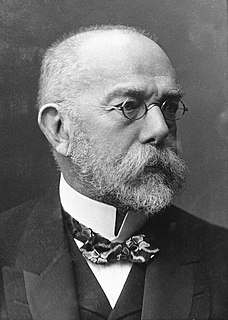A Quote by James Lovelock
Humans on the Earth behave in some ways like a pathogenic micro-organism, or like the cells of a tumor.
Related Quotes
When the finely tuned balance among the different parts of bodies breaks down, the individual creature can die. A cancerous tumor, for example, is born when one batch of cells no longer cooperates with others. By dividing endlessly, or by failing to die properly, these cells can destroy the necessary balance that makes a living individual person. Cancers break the rules that allow cells to cooperate with one another. Like bullies who break cooperative societies, cancers behave in their own best interest until they kill their larger community, the human body.
To our human minds, computers behave less like rocks and trees than they do like humans, so we unconsciously treat them like people.... In other words, humans have special instincts that tell them how to behave around other sentient beings, and as soon as any object exhibits sufficient cognitive function, those instincts kick in and we react as though we were interacting with another sentient human being.
I'd like to end the book a lot of ways. Except I don't have any answers. Use your common sense. Be nice. This is the best I can do. All the trouble in the world is human trouble. Well, that's not true. But when cancer cells run amok and burst out of the prostate and take over the liver and lymph glands and end up killing everything in the body including themselves, they certainly are acting like some humans we know.
... After it has been determined that the pathogenic organism is present in the animal body, and after it has been shown that the organism can reproduce in the body and be transmitted from one individual to another, the most important experiment remains to be done....to determine the conditions necessary for growth and reproduction of the microorganism.
I have been trying to think of the earth as a kind of organism, but it is no go. I cannot think of it this way. It is too big, too complex, with too many working parts lacking visible connections. The other night, driving through a hilly, wooded part of southern New England, I wondered about this. If not like an organism, what is it like, what is it most like? Then, satisfactorily for that moment, it came to me: it is most like a single cell




































